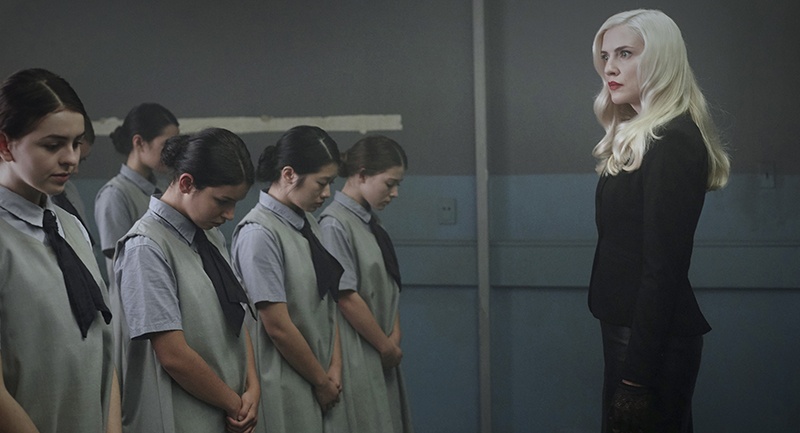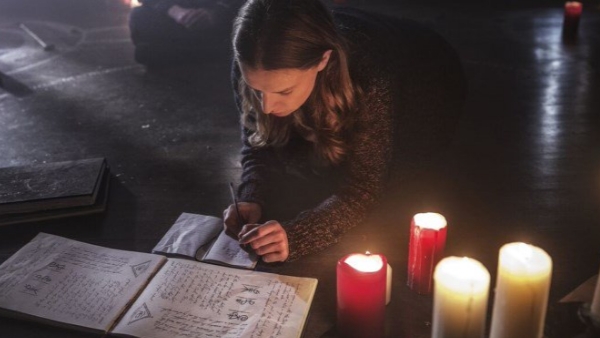 In Level 16, director Danishka Esterhazy offers a lot of pointed social commentary in her film about a group young women being prepared for adulthood. There’s a gripping surface-level narrative unfolding, but beyond the literal plot points, Esterhazy also presents the audience with lots more to ponder. The film finds the above-mentioned adolescent females being raised in a questionable institution. You can’t call it a school, because there are no windows, odd concepts of time, and the girls have little to no knowledge of the world.
In Level 16, director Danishka Esterhazy offers a lot of pointed social commentary in her film about a group young women being prepared for adulthood. There’s a gripping surface-level narrative unfolding, but beyond the literal plot points, Esterhazy also presents the audience with lots more to ponder. The film finds the above-mentioned adolescent females being raised in a questionable institution. You can’t call it a school, because there are no windows, odd concepts of time, and the girls have little to no knowledge of the world.
From frame one, there’s something or rotten in Denmark, or what seems like the former Soviet Union. The girls just don’t know what they don’t know, and so they are easier to manipulate. Born into this system, they set their sights on the future: a better life once a donor adopts them. Their caretakers even go so far to scare them with the idea that it is unladylike to submit to vices, and sternly insist they pursue only virtues. Worse, they threaten them with the shame which comes from a girl being unclean, both literally and in reputation. It’s really psychological terror.
To viewers, there are very few gifts for good behavior (even virtuous), little-to-no words of encouragement, and friendship (both the value of and the abundance of) is nil. The only happiness seems to come from their vitamins being a different color, being asked to swap chore duties, or watching the same black and white movie for years on end (and learning dated vernacular from more than six decades ago). They have no basis of comparison, and that’s what really makes your heart go out to them, even more than when you learn their inevitable fate just a bit before they do.
Beyond the base plot, Esterhazy brings up questions like: Why do we blindly follow authority? Why is it wrong to question things? Who gets to make the rules? How easy is it to fall in line when everyone else is obedient? The film has echoes of The Island, Equilibrium, even The Matrix, and it’s not something we haven’t seen before. Yet coming at it from a woman’s point of view, and further, very impressionable young women, makes it scary. What other things do people conform to in social circles just to be accepted or simply be viewed as normal? And, are the rules different for males?
There are elements of hope (false hope, really), and Esterhazy paints a bleak picture that is familiar but in very uncomfortable ways. When the curtain is pulled back, multiple times, the subsequent shock find the girls growing up fast. And the shock at the revaluation, the first of many, is heartbreaking for those who were simply following the rules.
The production design is claustrophobic, utilitarian and telegraphs that things are going to be a bit off. One surprising bit is that there’s just a tiny bit of sympathy afforded to the characters controlling the girls. Little spoiler here, but this is because of another sub-level theme that runs through the narrative: everyone has a boss. Like life, there are very few times when you aren’t working for someone else. That’s as inspired in this film as it is true to life.
Even though it is shot very economically, Level 16 is powerful genre filmmaking that dabbles in sci-fi as it tries to shake up social expectations. It’s so gripping and well done that the themes alone hit harder than the actual finale.


